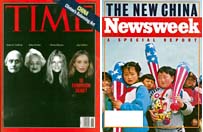
Time and Newsweek, June 29
(posted Tuesday, June 23, 1998)
Newsweek publishes an immense package on China, pegged to President Clinton's visit. Overall theme: China's rapid modernization. Among the 13 features: maps and graphs charting China's economic progress, inside looks at fledgling modern art and punk rock scenes, and a remembrance of the Tiananmen Square massacre. An interview with Jiang Zemin finds the Chinese president optimistic that Clinton's trip will improve Sino-American relations but stubborn in denying Taiwanese independence. President Clinton authors an essay arguing that engagement, not isolation, will lead China toward peaceful democracy. Henry Kissinger contributes a piece that closely echoes Clinton's.
Time's cover traces American feminism with portraits of Susan B. Anthony, Betty Friedan, Gloria Steinem, and Ally McBeal. (Note to Time: McBeal is a fictional character.) Inside, the cover story eviscerates the new feminism--a girlish, whiny, self-obsessed, sex-obsessed movement personified by McBeal, the Spice Girls, and writers such as Katie Roiphe and Elizabeth Wurtzel. Instead of complaining about the wide wage gap women still face in the workplace, modern feminists complain about their looks. ... A Time piece professes dumbfoundedness at professional wrestling's recent resurgence (wrestling shows now top cable ratings), but the article seems like more hype for the "sport." (FYI: Hulk Hogan is now a bad guy. Who knew?)
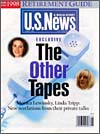
U.S. News & World Report, June 29
(posted Tuesday, June 23, 1998)
U.S. News' exclusive: A reporter has listened to previously unreleased tapes of Linda Tripp's talks with Monica Lewinsky. On the tapes: No confirmation of a sexual relationship, and evidence that Vernon Jordan was helping Lewinsky find a job long before she and Tripp were subpoenaed. (Both of which buttress the president's defense.) Delicious detail: Lewinsky thinks "the president was becoming sexually aroused when Lewinsky told him about her Defense Department trip to Bosnia." Odd detail: U.S. News says Tripp "engages in hearty locker room talk" on the tapes, citing a moment where Tripp says she has to "pee." Which puritanical locker rooms has U.S. News been hanging out in?
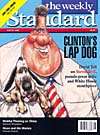
Weekly Standard, June 29
(posted Tuesday, June 23, 1998)
The cover story rips Steven Brill's "Pressgate" article in the premier issue of Brill's Content. The Standard argues that Brill employs "fundamentally dishonest journalism"--ignoring contrary arguments, misquoting, and relying on anonymous sourcing (precisely the practice Brill so despises in other media). (For a similar conclusion, see last week's "Strange Bedfellow" in Slate.) ... A story debunks the Time/CNN scoop that the United States used sarin nerve gas against American defectors and North Vietnamese during the Vietnam War. Interviewing several sources who claim they were misrepresented by CNN reporter April Oliver, the piece argues persuasively that "Operation Tailwind" used tear gas, not nerve gas.
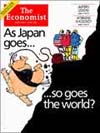
Economist, June 20
(posted Saturday, June 20, 1998)
The cover editorial warns that Japan's economic woes are real and are not going away. Japan must reform its banks and maintain loose fiscal and monetary policy (even though that means a cheapened yen), or the rest of the world will soon feel the aftershocks of its recession. Dilemma for America: We should be raising interest rates to keep our overheating economy in check, but a rate hike would worsen Asia's problems by hurting its debtors. ... A story says company directors' investing habits are a good gauge of where the market is heading. Lately, directors have been overwhelmingly selling their own companies' shares. ... An essay urges England to withdraw its soccer team from the World Cup if it is unable to squelch the violence of hooligan fans. British thugs have already begun rioting in France this summer.
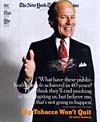
New York Times Magazine, June 21
(posted Friday, June 19, 1998)
The cover story profiles Steven F. Goldstone, RJR Nabisco chairman and Big Tobacco defender. Unlike other tobacco VIPs, Goldstone willingly admits the weed is addictive, carcinogenic, and evil (and that firms may have marketed cigarettes to kids), yet he's leading the fight against congressional sanctions. Goldstone finally decided a settlement didn't make fiscal sense and that he'll continue to manufacture cigarettes until tobacco itself is illegal. ... A story says exiled Chinese dissident Wei Jingsheng may not be the best activist for his cause. Wei's a weak political theorist, and his long imprisonment has left him naive about the workings of the modern world. (He still views China as Maoist.) Still, Wei's indomitable charm and spirit make him a formidable foe for Beijing. ... An article traces a promising development in the search for an AIDS cure. Some HIV patients quit drug regimens and find their immune systems, having been bolstered by the drugs, are suddenly able to fight the virus without help. This could lead to a vaccine.
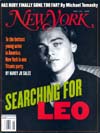
New York, June 22
(posted Thursday, June 18, 1998)
The world's hottest celebrity is exposed. The hilarious cover story chronicles Leonardo DiCaprio's misadventures in Manhattan. DiCaprio and his misogynist, potty-mouthed entourage don't tip at restaurants (or strip clubs), brawl with detractors, throw food at photographers, and ooze sleaze. Sample: Leo's bad boys phoned actress Elizabeth Berkley (Showgirls) at all hours of the night, hoping she'd leave her boyfriend and join them for drinks. When her boyfriend finally told them to stop bothering her, one of Leo's posse sucker-punched him.
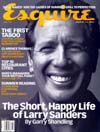
Esquire, July 1998
(posted Thursday, June 18, 1998)
Esquire's coup: face time with the reclusive Clarence Thomas. The piece finds the Supreme Court justice bitter at his lot and deeply suspicious of the white world. Thomas counsels successful young black men that, upon leaving their neighborhoods, "you won't ever really be able to go back. But you may find you're never fully accepted up ahead, either, that you've landed between worlds. That's the way I feel sometimes, even now, and it can make you angry." ... A story says the top five restaurant cities other than New York City are (in descending order): San Francisco, Chicago, New Orleans, Los Angeles, and Boston. ... Rick Moody and David Foster Wallace contribute short fiction to a summer reading package.
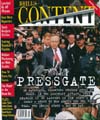
Brill's Content, July/August 1998
(posted Wednesday, June 17, 1998)
The debut issue of a magazine billing itself the "independent voice of the information age." Overall tone: sanctimony, exemplified by the series of "lessons" to the press at the end of the cover story ("no one should read or listen to any media outlet that consistently shows that it is the lapdog of big, official power rather than a respectful skeptic"). The much-touted 30 page cover piece ("Pressgate") carefully reconstructs coverage of the Lewinsky scandal, congratulating a few responsible reporters and tsk-tsking almost everybody else for uncritically accepting Kenneth Starr's leaks. It blames the scandal on 1) Linda Tripp's desire for a book contract; 2) Lucianne Goldberg's hatred of the president and lust for attention; and 3) Starr's self-righteousness. The piece also breaks the news that Starr admits leaking to the press--something Starr had previously denied. ... Actor George Clooney pens an editorial urging the press to be more truthful. Speaking of the Lewinsky scandal, about which several press outlets tried to interview him, Clooney writes, "I am an actor (unless you saw Batman), so how could my thoughts on this subject be newsworthy?" Exactly. ... Throughout the magazine, short pieces offer insider looks at the media biz, including a feature listing selected journalists' salaries.
--Seth Stevenson
